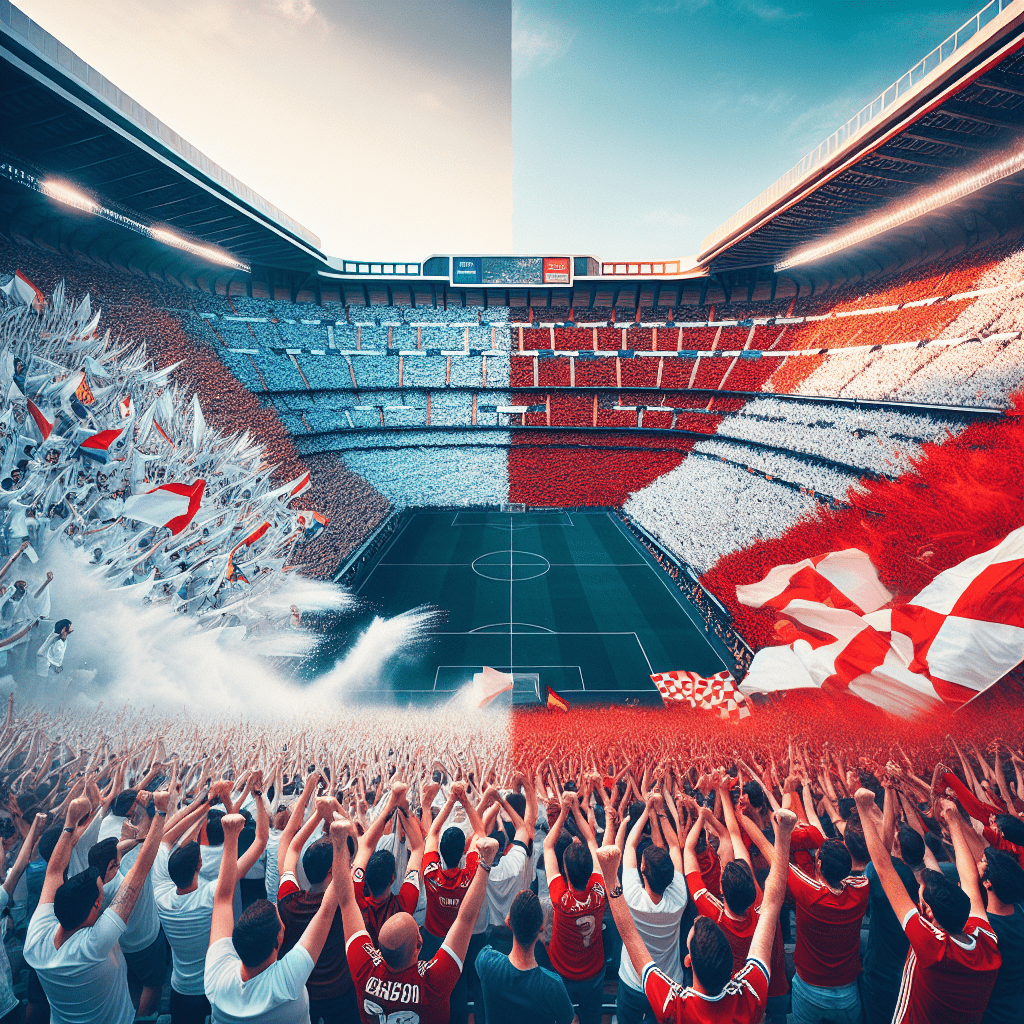The History of Atlético Madrid vs Real Madrid: A Rivalry Written In Passion and History
Madrid, Spain’s grand city, is not only the bustling capital but also the battleground of one of football’s most intense rivalries: the derbies between Atlético Madrid and Real Madrid. This rivalry extends beyond the pitch, symbolizing the cultural and social schisms within Madrid and also the different philosophies towards football and life.
Origins of the Rivalry
Real Madrid, often associated with the Spanish establishment and aristocracy, has enjoyed perennial success for decades. The club has won numerous domestic titles and Champions League trophies, making it one of the most storied teams in football history.
In contrast, Atlético Madrid has traditionally been seen as the team of the people. Founded by a group of Basque students living in Madrid, it has always been the tenacious underdog, fighting for every inch against their more glamourous neighbors. Their mantra has long been about grit, hard work, and a passionate style of play.
The duels between these two titans not only electrify their city but also set stages worldwide where football enthusiasts gaze eagerly at one of the most hotly contested matches known as El Derbi Madrileño.
Memorable Matches and Moments
Throughout history, both clubs have had their shares of triumphs and heartbreaks when facing each other. Memorable matches include Atlético’s improbable double over Real Madrid during their LaLiga-winning campaign of 2013-2014, or Real’s dramatic win in the 2014 Champions League Final, where they secured La Decima – their tenth European title – after extra time following a late equalizer in regular time.
The proceedings on the field are marked by intense physical and technical displays, showcasing some of soccer’s finest talents. These fixtures are often tight contests — decided by moments of individual brilliance or strategic masterstrokes.
Cultural Impact and Social Significance
This poignant rivalry has not just played out on the pitch; it’s firmly embedded within the city’s culture. Many fans tie their support to family traditions, local identities, as well as political allegiances. These dimensions imbue each derby with a profound intensity felt by players and fans alike.
This social context is important to understand because it elevates the stakes of each encounter beyond sporting success. It incorporates values deeply woven into Madrilenian society — unity amongst adversity for Atlético and regal excellence prevalent in Real’s ethos.
Economic Considerations and Club Strategies
Economically, both clubs have handled their affairs differently. Real’s strategies have long included high-profile player acquisitions — known as ‘Galácticos’ — attracting players such as Cristiano Ronaldo and David Beckham. A business model focused on global brand expansion has catapulted Real Madrid to becoming one of the richest sports entities worldwide.
Conversely, Atlético—as characterized by its management under Diego Simeone—has acquired a reputation for prudence and overachievement. Shifting focus toward talent development and an all-for-one work ethic successfully challenges not only their city rivals but other footballing elites.
The Future of El Derbi Madrileño
As time progresses, this derby continues to evolve. While newer narratives unfold with each passing season, tensions persist given the rivalry’s historical baggage — reinforcing partnerships among fans yet simultaneously dividing households when game day arrives.
There is an understanding that no matter what present fortunes read for Atlético or Real, El Derbi Madrileño will perpetually supply drama through dynamic counter-narratives: David versus Goliath scenarios in tandem with the mercurial beauty football can provide when its most evocative stories are told.
